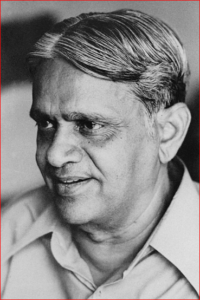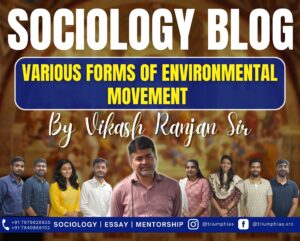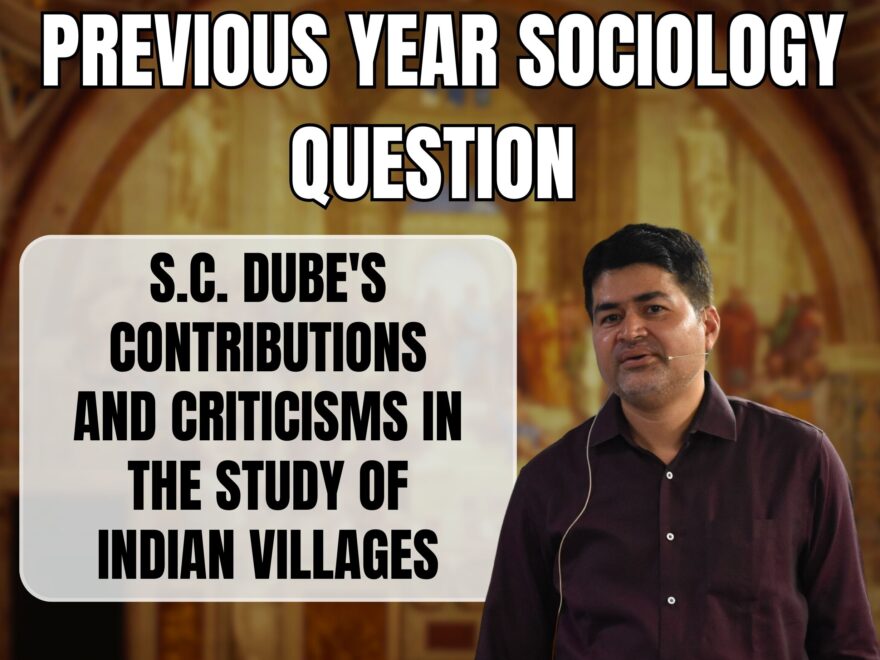Critically Examine Dube’s Contributions to Study of Indian Village.
(Paper: 2, Section- A, Year 2019, Unit 12: Rural and Agrarian Social Structure, idea of Indian Village: Village Studies)

Critically Examine Dube’s Contributions to Study of Indian Village.
(20 Marks)
| Introduction: Brief about S. C. Dube ‘s Methodology
Main Body: His Contribution to Village Study , Criticism of S. C. Dube Conclusion: Significance of Analysis Provided by S. C. Dube |
Introduction
Shyama Charan Dube took forward the tradition of field study and structural functional perspective introduced by M.N. Srinivas in studies of village. He provided descriptive exploratory account of village studies.
Main Body
His Contribution to Village Studies can be Understood by Following Points:
- He provided interdisciplinary attitude to village studies. He during his study of Shamirpet village collected data from geographical, historical, political perspectives alongside with sociological perspective.
- He gave deductive – positivistic dimension to village studies.
- He divided Indian villages into
- Single settlement villages
- Nucleated villages
- Dispersed villages
- He advocated that to conduct village study one must examine various units through which village community is organized.
- He gave the idea of village being part of wider social network rather than being autonomous and independence.
- He added dimension of economic structure to village studies. He studied different occupations of people in village.
- He studied religion in village beyond the traditional Hindu angle and found major type of religious services and festivals in village like family ceremonies , village festivals and also focused on Hindu – Muslim interaction during festivals.
- Going beyond the myopic caste based status differentiation in village. Dube identified six factors that contributed to status-differentiation or inequality in the village community.
- Caste and religion
- Land-ownership
- Wealth
- Position in government service and village organisation
- Age
- Distinctive personality traits.
- He adds to concept of dominant caste by exploring the idea of leadership and dominant individual. He finds political power concentrated in few individuals rather than diffused in caste. In each village there are some dominant individuals who have decisive say in political participation of the members of village.
- He added wider dimension to gender aspects of village studies. He studies women in term of five actives.
-
- Domestic work
- Agriculture
- Festivals and ceremonies
- Birth ‘marriage and death
- Village administration and politics
- He established the importance of study of villages for development viewpoint. He pointed out the importance of human elements in community development
Criticism of S C DUBE
- His work has also faced criticism for its limited engagement with issues of caste, class, and gender, which are central to understanding rural inequality and dynamics.
- Critics also argue that his reliance on qualitative methods could sometimes lead to anecdotal evidence and a lack of statistical rigor.
- He is criticized for focusing on structures which reproduced order and change and conflicts are largely undermined.
- His method of participant observation for village studies is criticize for its requirement of acceptability of researcher in village , which can breed to biasness in the viewpoint.
- Dube occasionally romanticized traditional village life and overlooked the agency of rural people in shaping their destinies.
Conclusion
Despite the criticism s. C. Dube provided extensive work on village and he expanded the scope of village studies from the study of ritual and tradition to economic, political and planning and development view point. C. Dube’s work highlighted the complex web of social, economic, and cultural factors that contribute to status differentiation in Indian villages, and these factors continue to be relevant for understanding rural dynamics in India.
Related Blogs …
 |
 |

To master these intricacies and fare well in the Sociology Optional Syllabus, aspiring sociologists might benefit from guidance by the Best Sociology Optional Teacher and participation in the Best Sociology Optional Coaching. These avenues provide comprehensive assistance, ensuring a solid understanding of sociology’s diverse methodologies and techniques.
META TAGS:
Indian village, indian village sociology, indian village as a social system anthropology upsc, village studies in india sociology upsc, characteristics of indian village in sociology, essay on village life in telugu, the soul of india lives in its villages upsc, sociology of rural life in india, significance of village studies in india upsc, significance of village studies in indian sociology, 5 indian sociologist, M.N. Srinivas, S.C. Dube, Indian Villages, Rural India, Sociology, Cultural Perspectives, Social Structure, Political Power, Economic Factors, Dominant Caste, Sanskritisation, Community Development
Why Vikash Ranjan’s Classes for Sociology?
Proper guidance and assistance are required to learn the skill of interlinking current happenings with the conventional topics. VIKASH RANJAN SIR at TRIUMPH IAS guides students according to the Recent Trends of UPSC, making him the Best Sociology Teacher for Sociology Optional UPSC.
At Triumph IAS, the Best Sociology Optional Coaching platform, we not only provide the best study material and applied classes for Sociology for IAS but also conduct regular assignments and class tests to assess candidates’ writing skills and understanding of the subject.
Choose The Best Sociology Optional Teacher for IAS Preparation?
At the beginning of the journey for Civil Services Examination preparation, many students face a pivotal decision – selecting their optional subject. Questions such as “which optional subject is the best?” and “which optional subject is the most scoring?” frequently come to mind. Choosing the right optional subject, like choosing the best sociology optional teacher, is a subjective yet vital step that requires a thoughtful decision based on facts. A misstep in this crucial decision can indeed prove disastrous.
Ever since the exam pattern was revamped in 2013, the UPSC has eliminated the need for a second optional subject. Now, candidates have to choose only one optional subject for the UPSC Mains, which has two papers of 250 marks each. One of the compelling choices for many has been the sociology optional. However, it’s strongly advised to decide on your optional subject for mains well ahead of time to get sufficient time to complete the syllabus. After all, most students score similarly in General Studies Papers; it’s the score in the optional subject & essay that contributes significantly to the final selection.
“A sound strategy does not rely solely on the popular
Opinion of toppers or famous YouTubers cum teachers.”
It requires understanding one’s ability, interest, and the relevance of the subject, not just for the exam but also for life in general. Hence, when selecting the best sociology teacher, one must consider the usefulness of sociology optional coaching in General Studies, Essay, and Personality Test.
The choice of the optional subject should be based on objective criteria, such as the nature, scope, and size of the syllabus, uniformity and stability in the question pattern, relevance of the syllabic content in daily life in society, and the availability of study material and guidance. For example, choosing the best sociology optional coaching can ensure access to top-quality study materials and experienced teachers. Always remember, the approach of the UPSC optional subject differs from your academic studies of subjects. Therefore, before settling for sociology optional, you need to analyze the syllabus, previous years’ pattern, subject requirements (be it ideal, visionary, numerical, conceptual theoretical), and your comfort level with the subject.
This decision marks a critical point in your UPSC – CSE journey, potentially determining your success in a career in IAS/Civil Services. Therefore, it’s crucial to choose wisely, whether it’s the optional subject or the best sociology optional teacher. Always base your decision on accurate facts, and never let your emotional biases guide your choices. After all, the search for the best sociology optional coaching is about finding the perfect fit for your unique academic needs and aspirations.
Follow us :
🔎 https://www.instagram.com/triumphias
🔎https://www.youtube.com/c/TriumphIAS
https://t.me/VikashRanjanSociology
Find More Blogs
|
Scope of the subject and comparison with other social sciences |
|||
|
|
|
|
Modernity and social changes in Europe |


3 comments